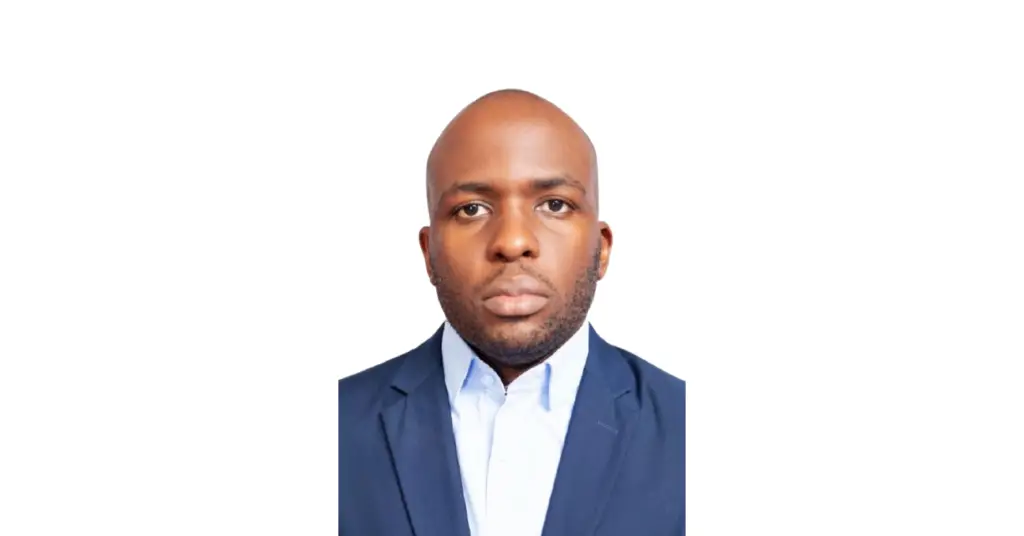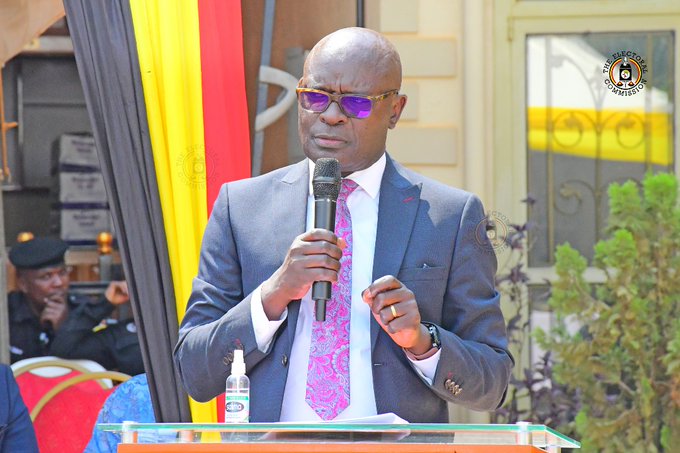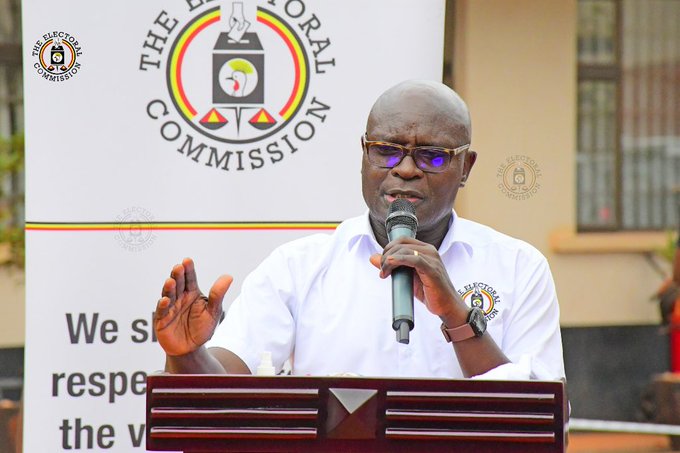By Andrew Karamagi
In pathology, a postmortem, as the word suggests, is an examination of a corpse that is conducted after (post) death (mortem).
The objective of the procedure is to determine how exactly, in medical terms, a person died. Yes, the deceased suffered visible gunshot wounds; Yes, we saw the deceased being run over by a speeding car; Or yes, the deceased’s food was laced with poison.
The postmortem examination goes further than that visible, proximate, or apparent cause to establish how the gunshot wounds, speeding car, or ingestion of poison led to death.
For example, was a critical artery severed; did a vital organ get ruptured; did a lung collapse; or did the heart stop?
In terms of medical history, the Uganda Law Society (ULS) has been bedridden for years, showing basic signs of life (respiration and blood circulation), but not much else. On some occasions comatose.
Yet it is also true that the deceased was born with congenital defects that limited their quality of life.
Its past glories are so far behind that they are—for younger generations like mine—forgotten or altogether unknown.
In the final moments of the Society’s sickly existence, four ailments have proved fatal, namely:
Schooled, but uneducated lawyers
In his seminal work on the effects of neoliberal reforms on higher education in Uganda, Professor Mahmood Mamdani explains how the privatization of university education stripped Humanities syllabi of their civic, liberating, and subversive value and replaced it with the pursuit of top marks (at all costs, including, and by extension, examination malpractice at the secondary school level).
Together with revered courses like Human Medicine and the various Engineering disciplines, the Law program became the exclusive domain of those who had scored top marks in high school—regardless of how they got them.
Whereas several entrants and subsequent university graduates are deserving (and demonstrably brilliant performers), just as good a number are products of a system that prioritizes high scores, which often means and is reduced to the ability to cram information and regurgitate it in an examination.
Critical thought, independent analysis, and initiative are a rare thing today, despite the star-studded transcripts that many graduates (including lawyers) hold. This type of graduate is a major headache for supervisors in workplaces, employers, and those who conduct job interviews.
The point I am making is that a dangerously significant portion of lawyers today are products of a dysfunctional education system. Robots that are capable of cram work, but lacking in initiative, critical thought, and civic competence or political engagement. Devoid of philosophical grounding or ideological conviction.
As such, it is impossible to build an elite, politically consequential, culturally sophisticated, and reputable professional fraternity with such a constituent base. A society, or the Law Society for that matter, cannot rise above the mentality of its majority.
A stagnant, congested, and unrewarding market
Legal business in Uganda is a woefully unrewarding and narrow enterprise.
For the majority of lawyers, it is limited to drafting agreements of tenancy, contracts of sale, contracts of employment, documentation for land transactions, paperwork for divorce proceedings, and family-related matters like adoption and legal guardianship, moreover for clients who don’t want to pay or cannot afford the services.
Domains like intellectual property, corporate mergers and acquisitions, complex commercial transactions like syndicated loans and securities, energy (oil and gas), and digital technologies are the preserve of a tiny fraction of top-tier law firms, which are also part of multinational giant firms.
Emerging areas like genetics, AI, synthetic medicine, aviation law, sports science, and quantum computing are fairy tales. Operating in such an environment has implications for the quality of conversations that circulate in the fraternity. There is a lot of wheeler-dealing and biboozi boozi (trivia).
The pie is so small that a huge number of lawyers find (more) gainful employment elsewhere in government offices, NGOs, private consulting, teaching in universities (several of which are glorified secondary schools), brokerage for any and everything, elective politics, law enforcement and in the military. Even then, our paltry thirty-billion-dollar economy cannot comfortably absorb the over five thousand lawyers in circulation.
One very embarrassing, but commonplace feature of the profession in Uganda is the kinds of offices that many lawyers operate: unseemly, antiquated, and lifeless spaces that are housed in what we Ugandans call arcades or malls—next to noisy electronics shops selling counterfeits, dingy barbershops, makeshift restaurants, chaotic houses of prayer, sleazy bars, and shacks of similar ilk.
In the lonely streets of rigorous academic research, exceptions like Professor Joe Oloka-Onyango and Dr Busingye Kabumba are the exceptions that prove the general rule. Little wonder we don’t generate knowledge or insight products that would go by names like the “Kampala Law Review”, for example. The instructive East African Journal of Peace and Human Rights by HURIPEC could not thrive in such an environment.
So much for calling ourselves Learned Friends!
Those graduates who have the means or the opportunity simply emigrate for further studies or find work in other markets.
The drafters of the Uganda Law Society Act (which is the second last ailment I will talk about) did not anticipate that lawyers would operate in such precarious circumstances. They were certainly too optimistic if they expected a Law Society worth its name to sprout from such material conditions.
The statutory foundation of the Bar Association
Since its inception as a commercial enterprise to supply the business interests of the British Crown, the Ugandan State has been true to its form as a tool for the extraction of natural resource wealth, a whip for repression, a muzzle for the silencing of dissenting views, and the expansion of British cultural influence through religion and education.
The ULS is established by the State—through the legislature—by an Act of Parliament called the Uganda Law Society Act, Chapter 276 of the Laws of Uganda. This automatically brings it within the realm of the State’s excessive power and overreach. Even worse under a militaristic regime like the incumbent one.
Yet this is an institution that ought to be a union body of sorts and the vanguard for its members’ interests. I am of the considered opinion that (especially for emerging democracies, hybrid regimes, or outright dictatorships as we have in Uganda), professional associations like the ULS should be decoupled and freed from the built-in overwatch that the State exercises through its legislative and policy frameworks and coercive capabilities.
A fish cannot grow bigger than the tank in which its owner has placed it. Similarly, the Law Society in Uganda should not be comfortable being founded by the tools of an inherently authoritarian State.
In my mind, it is a major contradiction and mortal defect that the Law Society, which is a component of the country’s civil society, is at the same time established by an arm of the government/State.
My argument shouldn’t undo the case for the role of institutions like the Attorney General, Solicitor General, Law Council, or judicial officers in the ULS, but I hope the incestuous nature of the relationship is apparent. If, for instance, Parliament, under its current anti-people legislative agenda, repealed the Uganda Law Society Act, without a replacement, what would the status of the fraternity, moving forward be?
Regime longevity and family rule
Finally, but by no means the least, the ULS does not exist in a vacuum. Over the past four decades, a rag-tag militia posing as liberators morphed into a junta, and has now degenerated into a full-blown, but undeclared single-family monarchy that rules over just about every aspect of life in the godforsaken backwater we call a country.
One of the ways that the Museveni Family has attained this status is through the systematic destruction of any form of civil society—from religious institutions, cultural organizations, and political parties, to agricultural cooperatives, parent-teacher associations, NGOs, social movements, and professional associations like the ULS. Leaders and members are co-opted, threatened, harassed, or ostracised. Others are simply banned.
The last time the Law Society of Uganda firmly, collectively, and loudly expressed outrage over the dire governance crisis in the country was in 2005 when regime-sanctioned goons in police uniform and military fatigues raided the High Court.
The situation has since deteriorated, but the Bar Association is conspicuously silent. To illustrate the point with a very recent example, compare the robust response of the Law Society of Kenya to government-sanctioned violence against peaceful protestors to our feeble press statements “strongly condemning” and “calling upon the government to uphold the Constitution and observe human rights.”
Let me conclude this way: all told, after the ongoing clamor over whether to vote for Benito Mussolini, Adolf Hitler, or Nicolae Ceausescu dies down, an overnight vigil (disguised as an Election Watch Party) will be held on Saturday, 28 September 2024.
Clad in robes, resplendent suits, and designer accouterments of the black, white, grey, and baby blue varieties, replete with a dazzling command of the colonizer’s language, the frenzied throng of tipsy, depressed, and overworked Learned Friends will form a procession to the quick burial of the ULS at the National Cemetery of Would-be Heroes.
Cause of Death: multiple organ failure.
The price that good people pay for indifference to public affairs is to be ruled by wicked ones.
karamagiandrew@gmail.com | X: @karamagi_andrew















